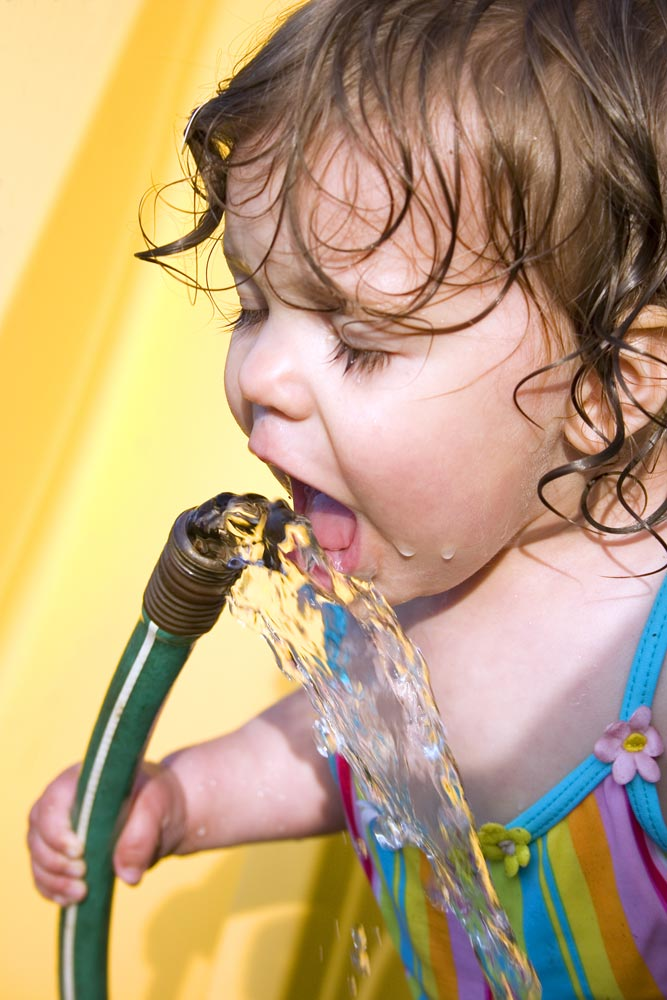
While many Montessori programs offer summer care, most American schools are shifting gears at this time of year, moving from a more formal, school year calendar to more relaxed activities for the longer days of summer. While your infant or toddler may be attending school less often, or not at all, there's still so much development happening.
If your child will experience a change in their daily routine, be prepared that the transition may not be as relaxing as you imagine your summer days should be. You might find that your child's sleep or eating schedule seems out of sync for a while, as they shift from the routines of school. Children often eat at extremes in the summer: either reducing their hunger as they respond to the heat or eating ravenously to accommodate for the common growth spurts that come in the summer months. And while you should still follow their lead on food, you may have to be much more attentive to your child's hydration. If your child seems unusually cranky, or there are more outbursts than usual, if they're lethargic or if they turn away from food, go for water, remembering that, by the time children show indications of dehydration, they're already suffering from it. Make sure to offer and model drinking regularly throughout the day.
Be careful, too, of over scheduling your little one during the summer months. You may, at first, be excited to have more time with your child or anxious to take advantage of all those staycation opportunities you didn't have time for during the school year. Think about how to balance these, though, with time at home, in familiar spaces, with reliable routines. When you do prepare a special outing for your child, think ahead to their "witching hours." Parents often want to take advantage of the beginning of the day, before nap times, for special events. Try things out on a late afternoon, when there may be fewer other children at the zoo or art center, and your child is well rested from a comfortable nap at home. You might find it's a more manageable time for exploring together.
Instead of grand outings, look for simple ways to connect your child to the new season. Visit the farmers market to choose fresh, seasonable berries. Spend time walking in your own neighborhood, noticing aloud for your child the ways in which your community is different in the summer. Practice blowing bubbles outdoors or visit a local garden to see what new colors have emerged. Move slowly, noticing with and for your child what is new and beautiful in the world around you.
Most importantly, remember that the primary goal of the window between birth and three years old is to offer your child reliable experiences with the world and with their caregivers that assure them that they are safe, they are loved and their influence is real. Family trips, for example, are less fun if they interfere with your child's sense of security. Slow down, knowing that the most important experiences your child will have during this window are the ones they have with your companionship and attention. Whether you're in your backyard or on an airplane to a great adventure, the best summer vacations for Infants and Toddlers are the ones that follow their pace and curiosity and allow them to spend time with the people they love.
#Summer #Infants #Toddlers #FirstPlane #ForParents #MontessoriAtHome #June
